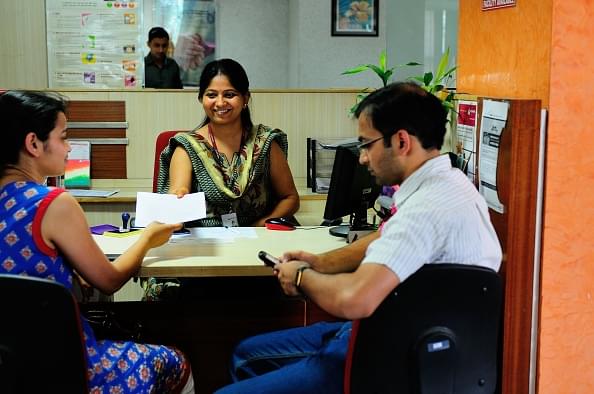Politics
Kannada Diktat To Banks Is Broadly In Right Direction, But It’s Not Enough
R Jagannathan
Aug 08, 2017, 11:26 AM | Updated 11:26 AM IST
Save & read from anywhere!
Bookmark stories for easy access on any device or the Swarajya app.


The Kannada Development Authority (KDA) is broadly on the right track in insisting that banks should ask their non-local staff to learn the language within six months, but it would have done better to couch the idea in terms of incentivisation rather than threats.
The KDA is right to presume that teaching the local language is not a priority for banks with branches in the state, but was it necessary to ask them to sack employees if they don’t learn the language? This would not only be unconstitutional, but will surely end up in courts for most banks have nationally transferable jobs above certain levels.
The Times of India quotes KDA chairman S G Siddaramaiah as saying: “If employees who do not know Kannada fail to learn the language within six months, they should be relieved of their services in accordance with the recruitment rules."
Policies insisting on non-locals learning the local language are good not only for Karnataka, but all Indian states, including the Hindi states. As a multi-lingual nation, we need to treat all languages as national languages, but since the Constitution also guarantees free movement of citizens across state borders for work or settling, regional languages face existential threats when English and Hindi find demographics and market dynamics (think Bollywood) working in their favour. Even without Hindi “imposition”, Hindi will anyway gain ground, just as English has by being the language of aspiration and career advancement.
But the answer to this existential threat is not signboard vandalism, as many Kannadiga organisations did with the Namma Metro Hindi signages, but by adopting policies that are mildly coercive and largely incentive driven. Love for a language should not mean hate for another.
For example, instead of threatening mayhem if banks don’t comply, the KDA should be offering to partly subsidise the costs of coaching non-Kannadiga staff to learn the language. It should be preparing 100-hour learning modules for the staff, which are easy to learn both in classrooms and at home.
A 100-hour learning module, at two hours of learning per week, roughly translates to six months – the deadline indicated by the KDA.
The emphasis should be on undergoing the 100-hour training, and creating the learning modules for the same. Those who complete the course can be given certificates, and those willing to undergo tests of proficiency, can be honoured with cash or other benefits.
The only way regional languages can hold their own against other regional languages and English is through carrot and stick: this means a policy with a deadline for learning (which KDA has done) and active incentivisation and encouragement to ‘expats’ to learn the language (which it does not seem to have done so far).
If I were the KDA, I would do the following:
One, create a simple module for self-learning, and make it available at low cost to anyone who wants to learn Kannada. This module should be focused not on teaching Kannada as it is taught in schools, but be more utilitarian in nature. Most people don’t need more than 100 sentences to get by, and this should be the focus.
Two, distribute free, slim pamphlets of about 20 pages at entry points to the state, mainly airports and railway stations, which give you the alphabet, and help you with the usage of commonly used words and phrases in Kannada. In the digital age, this is even easier, and links provided in the pamphlet can be accessed through smartphones for learning pronunciation.
Three, any national organisation (not just banks) should be given subsidies to allow non-locals to undergo the 100-hour language course. These courses should be available in all major cities for anyone, for people to learn voluntarily at low cost. It is not fair to expect tottering banks to bear the whole burden of teaching the language. Even at a moderate cost of Rs 100 per person per hour, a bank with 50 non-local employees in a geography, and seeking to deliver 100 hours of Kannada learning, will have to incur Rs 5 lakh. And remember, this cost will be recurring, since employees will keep getting transferred in and out. And this cost will ultimately have to be incurred by all branches, in every state, since the idea will not be restricted to Kannada. Think of the Kannadiga posted in Assam having to learn Assamese. Just as Hindi learning is subsidised, local language learning has to be partly subsidised by state if they are to gain traction.
If the state government, which is making much of its pro-Kannada leanings, really means what it says and is not using the emotive issue only to win the next assembly elections, it must put its money where its mouth is.
KDA is moving in the right direction, but it is not enough. Languages need promotion more than just the edict of the bureaucrat’s pen.
Jagannathan is former Editorial Director, Swarajya. He tweets at @TheJaggi.





